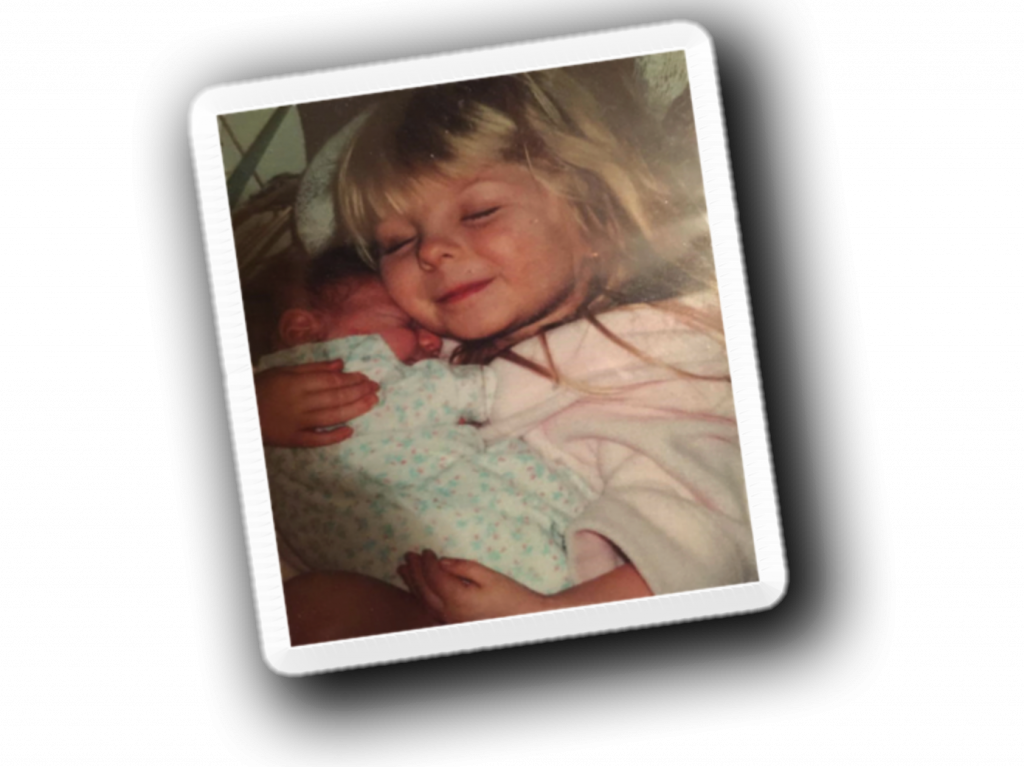By Aubrie Shrubb
The attic was always my escape from reality and the living hell of each day. My pink and white Little Tikes Victorian Princess Bench Toy Box was propped open, toys scattered throughout the darkened room. I knew I would be yelled at later when my father walked up to his PC to play whatever game he was addicted to that week.
My toys ranged from the girly ones my parents so desperately wanted me to play with to the masculine ones I craved and desired. Whenever we’d play together, I’d force myself to pick up that princess Barbie that always looked untouched and attempted to play a role I was not born into. I’d twirl her around so that her dress spun with such elegance and her long blonde hair that resembled my own flowed alongside it. My father tried to transform one of my favorite G. I. Joe figures into a dreamy prince for my Barbie to fall head over heels for. I never dared to tell him that he wasn’t using his proper voice. I was already nearly deaf and feared losing more hearing from his bellowing screams so close to my ears.
When I was alone and could play in my own world, I felt most alive. I raced my Hot Wheels cars against one another around the makeshift petting zoo that I’d constructed with Lincoln Logs to hold my Pokémon figures captive. I reimagined my giant dollhouse meant for the purposeless Barbie dolls as a castle inhabited by my G.I. Joes to protect my almighty yet creepy Furby from those evil blonde devils that started the wars I was forced to face, both in my imagination and real life.
In a different corner of my playroom, a new pile of toys was slowly beginning to form for my newborn sister to play with once she could crawl and hold herself up. She was only a few weeks old, and I so desperately wanted to play with her and teach her the ins and outs of imagination.

I can recall the day my parents told me I was going to be a big sister. Instantly I lit up with excitement that I would finally have a baby brother. I’m sure my parents tried to explain to me that it might or might not be a boy, but I couldn’t hear them over my delighted screams. Later that day, they threw a shirt over me that said “Big Sister” in a rainbow of colors before we visited all our closest family members and friends to share the big news. At each stop, I was instructed to run up to them and show off my new shirt. Each time I was lifted up and bounced in their arms as they squealed excitedly.
I went on for months imagining what it would be like to have a brother and all the fun we’d have together. I couldn’t wait to show off all the cool toys I’d gladly share with him, and to have someone to relate to who’d finally understand me. Then the day came when I was told I was having a sister and I sobbed. My parents thought it was the normal reaction kids have to disappointment, but I was the only one who knew the real reason behind my broken heart.
I wanted a brother who I could relate to, not a sister out of fear she’d feel the same as I did. I knew there were girls the opposite of me who were strictly girly, fitting the picture-perfect idea of what a girl was meant to be. I was terrified that my sister might be like that, that I wouldn’t understand her and that she wouldn’t care for me. More than that, I was terrified of her living in this hell and feeling as I did.
The day they were to finally bring her home, I sat in the throne-sized armchair in our living room. The design reminded me of the static that appeared on the TV whenever the movie I was watching was over and needed to be rewound. I was cozy in my pink robe, waiting as patiently as I could, until I heard the garage door opening and closing. My body itched with anticipation and nervousness as I waited for the door to open up from the kitchen and for our cats to meow at my parents to greet them.
I twiddled my thumbs and focused on counting all ten of my toes until my parents made their way into the living room with the car seat that cradled my new baby sister. I sat on my knees, stretching my arms out to wiggle my fingers as I asked to hold her. “You have to sit down nicely,” my mother whispered to me. She made her way over to where I was readjusting myself on the armchair and kissed my head. She had taken hold of my arms, shaping them into a strong, tight oval. My father lifted the tiny and fragile baby I would now call my sister and brought her over to me. “Be careful now,” my mother added. “Her name is Alyssa Belle.”
Once she was laid in my arms, my body felt calm and relaxed. My nervousness melted away as I focused all my attention and love onto her. I couldn’t stop staring at this beautiful baby girl who was safe and trusting in my tiny arms. “Hi Alyssa, I’m Aubrie. I’m your big sister!” I snuggled in closer to her, her head pressed into my chest as I gently rested my head against hers. Maybe having a sister wouldn’t be as bad as I had thought.
